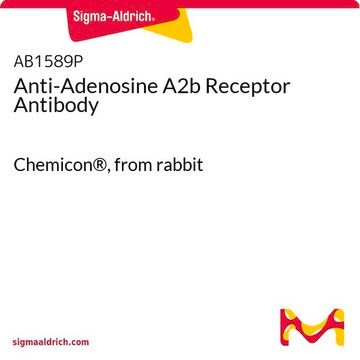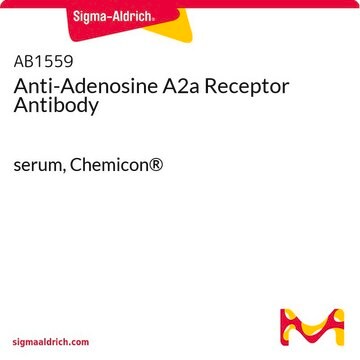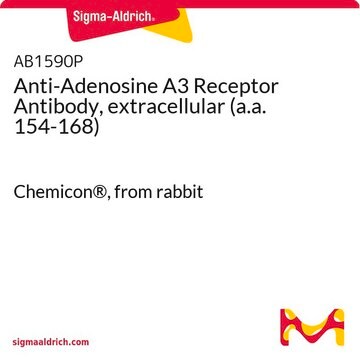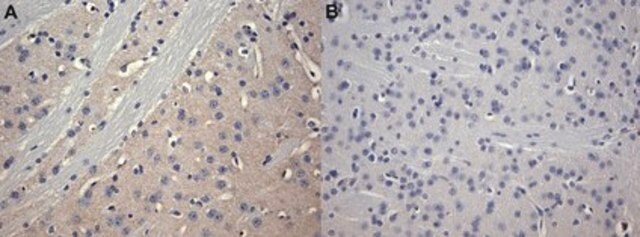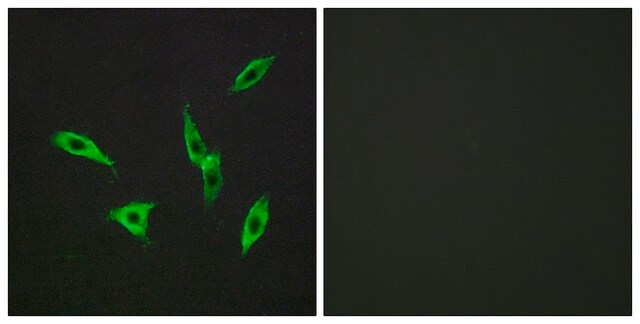AB1559P
Anti-Adenosine A2a Receptor Antibody
Chemicon®, from rabbit
About This Item
ICC
IHC
WB
immunocytochemistry: suitable
immunohistochemistry: suitable
western blot: suitable
Recommended Products
biological source
rabbit
Quality Level
antibody form
affinity purified immunoglobulin
antibody product type
primary antibodies
clone
polyclonal
purified by
affinity chromatography
species reactivity
pig, bovine, canine, human
manufacturer/tradename
Chemicon®
technique(s)
ELISA: suitable
immunocytochemistry: suitable
immunohistochemistry: suitable
western blot: suitable
NCBI accession no.
UniProt accession no.
shipped in
dry ice
target post-translational modification
unmodified
Gene Information
human ... ADORA2A(135)
Specificity
Immunogen
Application
Western blot: 1-10 μg/mL (Chemiluminescence technique), 40-100 μg membrane proteins/lane of striatal membranes. Higher concentrations of the antibody may be necessary if colorimetric detection or milk-based antibody diluent are used.
Immunocytochemistry: Caufield, 2003. Light 2% PFA fixation 5-10 minutes --long fixations lower staining intensity.
ELISA: 1:10,000-1:50,000 (50-100 ng A2aR peptide (Cat. Number AG285)/well)
Optimal working dilutions must be determined by end user.
Neuroscience
Neurotransmitters & Receptors
Circadian Rhythm & Sleep
Physical form
Storage and Stability
Other Notes
Legal Information
Disclaimer
Not finding the right product?
Try our Product Selector Tool.
Storage Class Code
10 - Combustible liquids
WGK
WGK 2
Flash Point(F)
Not applicable
Flash Point(C)
Not applicable
Regulatory Listings
Regulatory Listings are mainly provided for chemical products. Only limited information can be provided here for non-chemical products. No entry means none of the components are listed. It is the user’s obligation to ensure the safe and legal use of the product.
JAN Code
AB1559P:
Certificates of Analysis (COA)
Search for Certificates of Analysis (COA) by entering the products Lot/Batch Number. Lot and Batch Numbers can be found on a product’s label following the words ‘Lot’ or ‘Batch’.
Already Own This Product?
Find documentation for the products that you have recently purchased in the Document Library.
Our team of scientists has experience in all areas of research including Life Science, Material Science, Chemical Synthesis, Chromatography, Analytical and many others.
Contact Technical Service